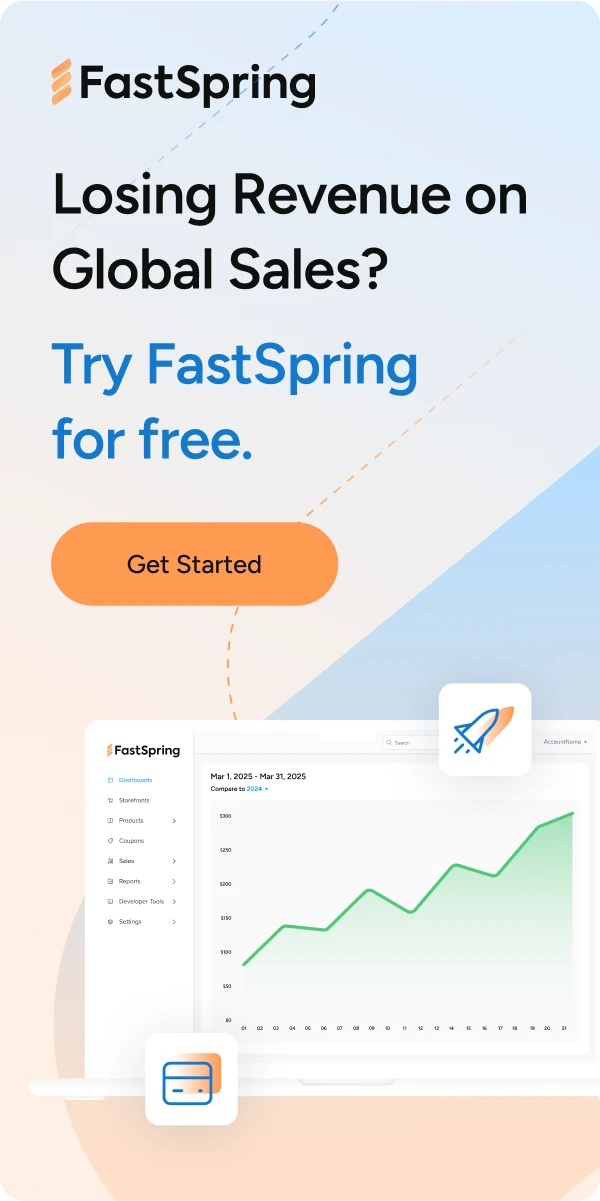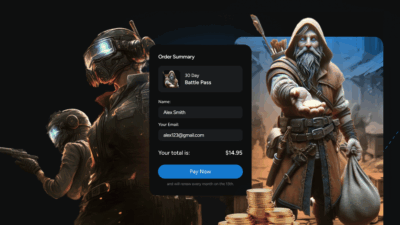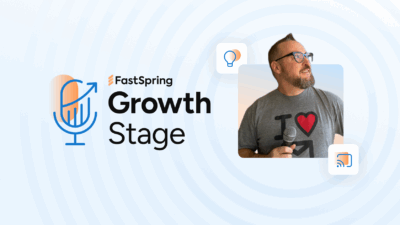Regardless of whether you believe that Epic Games or Apple won in the recent U.S. injunction, the ruling from U.S. District Judge Yvonne Gonzalez Rogers certainly captured the attention of the mobile development community.
“When we heard about it, we just stopped what we were doing,” an app developer told us on a recent call. “It shut down our shop for a while. We all wanted to read through the ruling to see what it meant.”
Pending Apple’s appeal, the Gonzalez Rogers ruling would enable developers to link to external payment systems (like FastSpring!) for in-app purchases — good news for companies that monetize with an upsell or upgrade pricing model.
Apple was given 90 days from the September 10 ruling to make changes to its system to allow these kinds of external payments. It has since asked the court for a stay — a motion likely to be ruled on sometime in November.
We don’t know what will happen in the courts, but we do believe this judgment could create a significant growth opportunity for SaaS and software companies — especially those using a product-led growth model.
Note: What does the Epic vs. Apple case mean for Apple’s 30% revenue cut? On Tuesday, November 2, FastSpring is hosting Unsettled: The Future of Apple’s 30% Cut, a free webinar covering all the latest on Epic vs. Apple case. Our guest will be attorney Richard Hoeg, host of the 45,000+ subscriber Virtual Legality YouTube channel. Sign up for the free webinar today!
New Revenue Opportunities From Mobile Apps
For companies that may have avoided mobile apps, Google and Apple’s policy changes plus the Gonzales-Rogers ruling could create significant new revenue opportunities.
I expect to see more B2B companies taking advantage of the distribution that the app stores provide when partnered with much more reasonable payment systems.
Robust desktop platforms could use mobile to create a new competitive advantage
For example, in the SEO market, top tools like Ahrefs, MOZ Pro, and SpyFu do not currently have a mobile app in the Google Play or Apple App Store. In B2B markets like this, the discovery and sales processes are much more likely to happen in desktop searches, and robust platforms such as these are going to perform better on desktop.
Moving forward, however, having a mobile app may create a new competitive advantage for companies looking to reach new customers — as well as providing access to their tools on the go.
I also suspect that mobile apps may have a stronger return on investment (ROI) moving forward.
Potential growth of alternative markets
Another thing I’ve been curious about is how this may affect the broader mobile market. At the moment, the Google Play and Apple marketplaces dominate the global market with more than three times the number of apps compared to any other marketplace.
Will the Google/Apple domination of the mobile market start to break down? If it does, we may start to see more of these smaller marketplaces grow in popularity and significance.
At the moment, we have no good way of knowing what the ROI would be for investing in smaller marketplaces, but it may be worth exploring, depending on your target audience.
Recent Changes to Apple and Google Marketplaces
Even before the Gonzalez Rogers ruling, we were seeing changes in both the Apple and Google marketplaces that favored small developers.
Until recently, both tech giants took a 30% cut from any revenue in their app marketplaces. But at the beginning of 2021, Apple reduced its cut for any developer earning less than $1M a year to 15%.
Google soon responded to the move, matching Apple’s move to reduce its cut from 30% to 15% for the first $1M in app-store revenue.
These changes occurred as both companies faced public scrutiny around their practices, including state and federal lawsuits in the U.S. and similar antitrust cases in South Korea and the European Union.
Is There an Opportunity for Your Company?
If you’re already on the app store, you’ll want to research what opportunities this change brings. If you’ve avoided the app store, it may be time to reconsider!
Depending on what the courts do, we may find ourselves in a place where you can avoid Apple’s 30% cut for in-app purchases, certainly an opportunity worth considering as you plan your development efforts moving forward.
If and when Apple is forced to allow third-party payment processors in its application, FastSpring will be ready to help.
Will FastSpring Support In-App Payments in Mobile Applications?
The short answer is: yes!
In fact, FastSpring already supports a variety of companies with mobile applications in the App Store that use a direct sales model to reach customers.
If and when the courts force Apple to allow third-party payment systems for in-app purchases, developers will be able to use FastSpring’s secure payment system to manage those purchases.
We’ll have much more to say on this topic in the coming weeks.
Note: Join us on Tuesday, November 2, for Unsettled: The Future of Apple’s 30% Cut, a free webinar covering all the latest on Epic vs. Apple case. Our guest will be attorney Richard Hoeg, host of the 45,000+ subscriber Virtual Legality YouTube channel. Sign up for the free webinar today!
![[Customer Story] Why TestDome Considers FastSpring a Real Partner](https://fastspring.com/wp-content/themes/fastspring-bamboo/images/promotional/2023/FastSpring-TestDome-blog-thumbnail.jpg)








